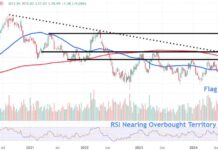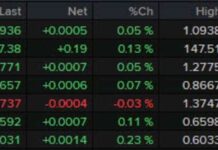Lately, the global stock markets have been all over the place, and it’s making investors super nervous. In the U.S., people are worried about a possible recession, and that’s causing some serious panic in the stock market. But Japan? Japan is really feeling it.
On August 5th, Japan’s Topix index took a massive hit, dropping 12%—its worst crash since 1987! At the same time, the yen got super strong, reaching its highest value in 37 years. But here’s the crazy part: the very next day, Japanese stocks bounced back up by 9% because investors rushed in to grab stocks at lower prices. Talk about a rollercoaster!
So, why is Japan’s market freaking out? A big reason is the uncertainty around the U.S. economy. Since the U.S. is the world’s largest economy, when things start looking shaky over there, it causes a ripple effect everywhere—including Japan. Investors are constantly checking economic reports and news to see how things might play out.
But it’s not just about the U.S. Japan also has its own issues that affect stock prices. Things like company earnings, government decisions, and even how confident consumers feel about spending money can all impact the market. That’s why investors have to stay on top of things and adjust their game plan when needed.
For regular investors (not just big businesses), dealing with these wild market swings isn’t easy. The best way to handle it? Diversify—meaning, don’t put all your money in one type of stock. Spreading it out across different industries helps minimize risk. Also, playing the long game is key. Stocks go up and down, but over time, patience usually pays off.
Keeping up with market trends, understanding economic news, and even getting advice from financial experts can help people make smarter decisions. Even though these sudden market drops can be scary, they also create chances for investors to buy in at lower prices and make gains later on.
In the end, while Japan’s stock market has been pretty chaotic lately, smart investors know that staying calm, informed, and strategic is the best way to ride out the storm.

















